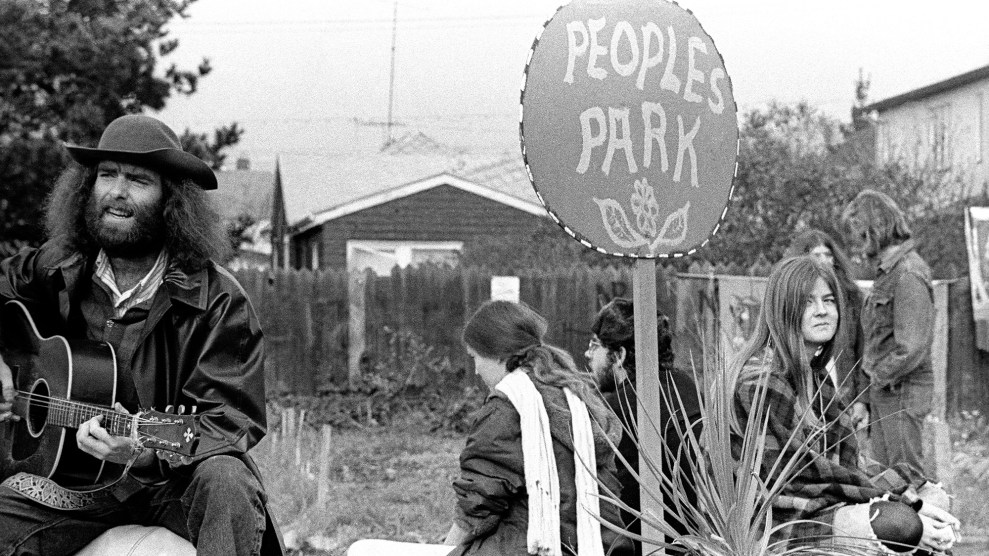Urban sprawl isn’t so bad, it’s just misunderstood. That’s what Robert Bruegmann’s arguing in a cover story for the American Enterprise Magazine. Needless to say, I totally disagree. The essay spends a lot of time fending off complaints that sprawl is ugly—”Class-based aesthetic objections to sprawl have always been the most important force motivating critics”—but then glosses over the really crucial objection here: namely, that sprawled-out cities use up a lot of energy. Bad news when we’re burning up the planet.
A 2003 World Bank study comparing various cities in the United States illustrates the difference a bit of sprawl can make. Boston, for instance, isn’t the most compact city around, but if its population was as spread out as, say, Atlanta’s, then Bostonians would be driving about 9 percent more. If Boston had Atlanta’s inferior rail system, driving would increase another 5 percent. In fact, if you could somehow wave a magic wand and move everyone in Boston to a city with all of Atlanta’s sprawl-like characteristics, total driving would increase 25 percent.
The relative location of jobs and housing also matter. Bruegmann claims that when urban planners tried to create towns such as Reston, Virginia with an even mix of housing and jobs, the effort failed because people still drove their cars hundreds of miles away to find even better jobs. No data, though. Roll tape to the World Bank study: Again, a city like Boston has a fairly even mix of jobs and housing; if it were to become as unbalanced as, say, Washington D.C., total driving would go up another 9 percent.
Now part of Bruegmann’s argument is that sprawl is inevitable—it happens to all cities, even in Europe—because people don’t like living in crowded urban areas and want low-density subdivisions and industrial parks and freeways. Well, maybe they do. But that doesn’t mean it’s impossible for urban planners to constrain sprawl. Compare Vancouver and Seattle. Similar cities in similar areas with similar sorts of people. Yet the former has promoted downtown development and limited freeway expansion and, as a result, has much less sprawl. Just because Parisians are fleeing to the suburbs en masse doesn’t mean it’s impossible to curb sprawl, and the excessive oil consumption that comes with it.
Moreover, if you want to get political about it (and hey, who doesn’t?) my own guess is that America has steadily grown more conservative over the past half-century partly because of urban sprawl. City-dwellers organize and use zoning laws to prevent new apartment complexes from being built, and developers—who would rather not amass armies of lobbyists and lawyers and community organizers just to build a new apartment complex—simply decide to start building out in the suburbs.
So that’s where people start moving: out of the city. Maybe it’s because they want to, as Bruegmann claims. But it’s also where the cheap housing is. And it’s not hard to imagine that life in the suburbs—where quality of life depends more on lower taxes and individual property rights than on public services, and where one can cloister off with one’s own ethnic and religious peers—turns people into Republicans. That’s unfair, of course, and suburbs aren’t nearly as stale as people make them out to be (Michael Pollan’s 2000 essay on this is quite entertaining), but probably not entirely inaccurate. Maybe all that money that’s being spent building up left-wing political “infrastructure” should just go towards affordable urban housing. An easier fix.
But whatever. By the way, if you want to read about an utopian urban center that seems to work, do check out Bill McKibben’s essay on Curitiba, Brazil, which has managed to curtail sprawl rather brilliantly with quality urban planning. “Because of its fine transit system, and because its inhabitants are attracted toward the city center… Curitibans use 25 percent less fuel per capita, even though they are actually more likely to own cars.” Plus, despite being a low-income city, Curitiba’s beautiful, people truly love living there, and even the slums are “clean” and “decent”. If McKibben’s picture is accurate, that’s a place worth studying.















